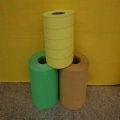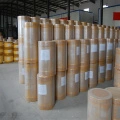The Critical Role of Fuel Filter Paper in Modern Filtration Systems
In the intricate ecosystem of internal combustion engines and various industrial fuel systems, the efficacy of filtration directly impacts operational longevity, performance, and environmental compliance. At the core of this filtration lies the fuel filter paper. This specialized media is engineered to capture particulate contaminants, water, and other impurities from fuel, preventing damage to sensitive engine components like injectors and fuel pumps. The selection and quality of fuel filter paper are paramount for OEMs and maintenance professionals seeking to optimize system reliability and reduce total cost of ownership. This article delves into the technical aspects, market dynamics, and strategic considerations surrounding this essential filtration component.
Industry Trends Shaping Fuel Filtration Demands
The fuel filtration industry is undergoing significant evolution driven by several key trends. Stricter emissions regulations, particularly in the automotive and industrial sectors, necessitate cleaner fuel delivery systems, pushing the demand for higher efficiency filtration media. The advent of ultra-low sulfur diesel (ULSD) and biofuels introduces new challenges, as these fuels can have different chemical properties and water retention characteristics, requiring specialized filtration solutions. Furthermore, advancements in engine technology, such as common rail injection systems, operate at extremely high pressures and tighter tolerances, making them highly susceptible to even microscopic contaminants.
These trends are driving the development of multi-layered filtration media and composite fuel filter paper elements that offer superior dirt-holding capacity and water separation capabilities without compromising flow rates. Manufacturers are focusing on sustainable production processes and materials, aligning with global environmental initiatives. The integration of smart filtration systems, incorporating sensors for filter life monitoring and predictive maintenance, is also on the horizon, further enhancing the role of high-performance paper fuel filters.

Advanced multi-layer fuel filter paper for enhanced performance.
Manufacturing Process of High-Performance Fuel Filter Paper
The production of high-quality fuel filter paper is a sophisticated process, demanding precision at every stage to achieve the required filtration efficiency, mechanical strength, and chemical resistance. Unlike metal components that might involve casting or CNC machining, the manufacturing of filtration media focuses on fiber manipulation and impregnation techniques.
Process Flow Overview:
- 1. Raw Material Preparation: This initial stage involves selecting a blend of high-grade cellulose fibers (e.g., wood pulp) and often synthetic fibers (e.g., glass, polyester, polypropylene). These fibers are chosen for their specific diameters, lengths, and surface properties to achieve desired pore size distribution and dirt-holding capacity. They are then dispersed in water to create a uniform slurry.
- 2. Sheet Formation (Wet-laid Process): The fiber slurry is fed onto a moving screen or mesh, where water is drained away, leaving a uniform mat of interlocked fibers. This forms the basic paper sheet. Precision control over flow rates and vacuum pressure ensures consistent basis weight and thickness.
- 3. Resin Impregnation: This is a critical step where the dry paper sheet is saturated with specialized thermosetting resins, commonly phenolic or acrylic resins. Impregnation enhances the paper’s mechanical strength (especially wet strength), rigidity, pleatability, and chemical resistance to various fuels and additives. The type and concentration of resin significantly impact the filter’s performance and service life.
- 4. Curing and Drying: After impregnation, the resin-saturated paper passes through a drying and curing oven. Heat treatment polymerizes the resin, bonding the fibers together and stabilizing the media structure. Careful control of temperature and time is essential to prevent degradation and achieve optimal physical properties.
- 5. Calendering and Finishing: The cured paper may undergo calendering, a process of passing it through rollers, to achieve a specific thickness, smoothness, and density. Finally, the finished fuel filter paper is slit into rolls of various widths, ready for conversion into filter elements through pleating and assembly.
Testing Standards & Advantages:
Rigorous testing is applied throughout, adhering to international standards such as ISO 16889 (Multi-pass method for evaluating filtration performance), ISO 4572 (for pore size and bubble point), and various ASTM and ANSI standards for material properties. These tests ensure the media meets specified micron ratings, dirt-holding capacity, burst strength, and permeability. The resulting fuel filter paper offers significant advantages in typical application scenarios: superior dirt holding capacity reduces filter change intervals, improved efficiency protects fuel injectors, leading to energy saving and reduced emissions. Its enhanced chemical resistance, derived from advanced resin formulations, ensures long service life even with aggressive modern fuels.

Precision manufacturing of fuel filter paper elements.
Technical Specifications and Performance Parameters
Understanding the critical technical specifications of fuel filter paper is essential for engineers and procurement specialists to select the optimal media for specific applications. These parameters directly influence filtration performance, filter lifespan, and overall system efficiency.
| Parameter | Unit | Typical Range for Diesel/Gasoline | Significance |
|---|---|---|---|
| Absolute Micron Rating | µm | 2 to 30 | Smallest particle size captured with near 100% efficiency. Critical for protecting injectors. |
| Beta Ratio (βx=200) | Ratio | ≥ 75 (for efficient filters) | Measures efficiency at a specific micron size (x); βx=200 means 99.5% efficiency. |
| Permeability (Air) | L/min/100cm² @ 20mmH₂O | 80 to 200 | Indicates resistance to flow; higher permeability means lower pressure drop. |
| Basis Weight | g/m² | 100 to 250 | Weight per unit area, correlates with media density and mechanical strength. |
| Thickness | mm | 0.4 to 1.0 | Influences pleatability and the amount of media surface area in a filter. |
| Burst Strength (Dry/Wet) | kPa | Dry: >250, Wet: >150 | Resistance to pressure rupture, crucial for integrity under operating conditions. |
| Chemical Resistance | N/A | Compatible with Diesel, Gasoline, Biodiesel (B5-B20) | Ability to resist degradation from fuel components and additives. |
| Operating Temperature | °C | -40 to +120 | Temperature range over which the media maintains its properties. |
These parameters are meticulously controlled during manufacturing to ensure the fuel filter paper performs reliably across diverse operating conditions and fuel types. The interplay between micron rating and permeability is particularly crucial, as a finer filtration often comes with higher pressure drop, necessitating careful media design.
Application Scenarios and Target Industries
The versatility and efficiency of fuel filter paper make it indispensable across a broad spectrum of industries, protecting critical fuel systems from detrimental contamination. Its applications span from microscopic particle removal in high-precision engines to ensuring the purity of fuel in large-scale industrial operations.
Key Target Industries:
- Automotive Industry: From light-duty gasoline vehicles to heavy-duty diesel trucks and buses, paper fuel filters are essential. They protect sensitive components like fuel injectors, common rail systems, and fuel pumps from particulate matter and water, directly contributing to engine longevity and maintaining emission standards.
- Marine Sector: Marine engines, operating in harsh environments, demand robust filtration. Fuel filter paper elements ensure clean fuel delivery, preventing engine breakdowns at sea and reducing maintenance costs for commercial vessels, yachts, and fishing fleets.
- Agricultural and Construction Machinery: Tractors, excavators, bulldozers, and other off-highway equipment operate with varying fuel qualities. High-performance fuel filter paper safeguards their diesel engines from dirt, rust, and water, ensuring reliable operation and extended service intervals in demanding conditions.
- Industrial Power Generation: Diesel generators, crucial for backup power and remote electricity, rely on effective fuel filtration. Clean fuel prevents injector fouling and wear, ensuring uninterrupted power supply and efficient fuel consumption.
- Petrochemical and Refineries: In these sectors, fuel filter paper is used not just for engine protection but also in process filtration for fuel polishing, preventing contaminants from affecting product quality or downstream processes.
- Aviation Ground Support: Equipment used for aircraft refueling and ground operations requires meticulously clean fuel. Specialized fuel filter paper helps maintain the integrity of aviation fuels.
Demonstrated Advantages:
In these scenarios, the advantages are clear:
- Energy Saving: By ensuring clean fuel, filter paper prevents injector clogging and inefficient combustion, leading to optimized fuel economy.
- Corrosion Resistance: Resin-impregnated media offers superior resistance to water and acidic components in fuels, preventing corrosion of fuel system metals.
- Reduced Maintenance Costs: High-efficiency filtration extends the life of costly engine components, significantly lowering overhaul and replacement expenses.
- Environmental Compliance: Cleaner combustion due to pure fuel helps meet stringent emission standards.

Fuel filter paper in heavy-duty applications.
Technical Advantages of High-Performance Fuel Filter Paper
The evolution of fuel filter paper has brought forth significant technical advancements, moving beyond simple particle retention to offering comprehensive protection for modern fuel systems. These advantages are crucial for enhancing operational efficiency, reducing downtime, and ensuring compliance with environmental regulations.
- Superior Filtration Efficiency: Modern paper fuel filters are engineered to achieve high beta ratios, effectively removing sub-micron particles with efficiencies often exceeding 99.5%. This precision filtration protects delicate fuel injector nozzles and pumps from abrasive wear.
- Exceptional Dirt Holding Capacity: Through optimized fiber distribution and multi-layer designs, high-performance fuel filter paper can trap a larger volume of contaminants before reaching its terminal pressure drop. This translates to extended service intervals and reduced maintenance frequency.
- Advanced Water Separation: Many advanced fuel filter paper elements incorporate hydrophobic and oleophobic treatments or layered media designs that effectively coalesce and separate water from fuel, preventing corrosion and microbial growth in the fuel system.
- Robust Mechanical Strength: Resin impregnation significantly enhances the dry and wet burst strength of the media, ensuring structural integrity even under varying flow rates and pressure pulses within the fuel system. This prevents media tearing or collapse.
- Chemical Compatibility: Formulations are developed to be highly resistant to degradation from a wide range of fuel types, including aggressive biodiesels and fuel additives, maintaining filter performance over its entire lifespan.
- Low Pressure Drop: While offering high efficiency, sophisticated media designs minimize resistance to flow, ensuring adequate fuel delivery to the engine without excessive energy consumption or cavitation issues for fuel pumps.
- Cost-Effectiveness: Despite their advanced features, fuel filter paper remains a cost-effective filtration solution, offering an optimal balance between performance and economic viability, especially when considering the extended component life and reduced downtime it enables.
Customized Solutions for Fuel Filter Paper
For OEMs and specialized industrial applications, off-the-shelf fuel filter paper may not always meet unique performance requirements. Leading fuel filter paper manufacturers offer extensive customization capabilities, collaborating closely with clients to develop bespoke filtration media tailored to specific needs.
Areas of Customization:
- Micron Rating and Efficiency: Adjusting fiber blends and media density allows for precise control over the target particle size removal, from coarse pre-filtration to ultra-fine final filtration.
- Basis Weight and Thickness: These parameters can be modified to influence dirt-holding capacity, pleatability, and overall media strength for specific filter designs.
- Resin Formulation: Custom resin types and impregnation levels can optimize chemical resistance to specific fuels (e.g., high biodiesel content) or improve wet strength and temperature stability.
- Special Treatments: This includes hydrophobic/oleophobic coatings for enhanced water separation, flame retardant treatments, or anti-static properties for sensitive environments.
- Multi-layer and Composite Media: Developing multi-layered fuel filter paper elements with different fiber compositions or pore sizes to achieve staged filtration, maximizing both efficiency and dirt-holding capacity in a single media.
- Roll Width and Core Size: Tailoring roll dimensions to seamlessly integrate into existing filter manufacturing lines, optimizing production efficiency for filter converters.
This collaborative approach ensures that the developed fuel filter paper perfectly matches the application’s unique operational demands, environmental conditions, and regulatory requirements, providing a distinct competitive advantage.

Custom fuel filter paper for specific applications.
Vendor Comparison: Selecting the Right Fuel Filter Paper Manufacturer
Choosing the appropriate fuel filter paper manufacturers is a strategic decision for any business reliant on robust filtration. The vendor’s capabilities, product quality, and support services directly impact the performance and reliability of the final filtration product. Below is a comparative overview of key criteria to consider.
| Criterion | Tier 1 Manufacturer (Premium) | Tier 2 Manufacturer (Standard) | Impact on Business |
|---|---|---|---|
| R&D and Innovation | Strong, dedicated labs, patented technologies, new media development for emerging fuels. | Focus on existing technologies, minor incremental improvements. | Access to cutting-edge solutions, future-proofing, competitive advantage. |
| Quality Certifications | ISO 9001, IATF 16949 (Automotive), robust internal QC. | Typically ISO 9001, may lack industry-specific certifications. | Ensures consistent product quality, traceability, and compliance with industry standards. |
| Customization & Technical Support | Full engineering collaboration, media tailored to exact specs, dedicated technical teams. | Limited customization, standard product lines, basic technical assistance. | Ability to optimize performance for unique applications, problem-solving, reduced development time. |
| Production Capacity & Lead Time | High volume capabilities, flexible scheduling, reliable and shorter lead times. | Moderate capacity, potentially longer or less predictable lead times. | Ensures supply chain stability, on-time delivery, minimizes production delays for filter assembly. |
| Pricing Structure | Premium pricing, justified by superior performance, innovation, and support. | Competitive, often lower initial cost. | Balances initial cost with long-term value (performance, reliability, reduced warranty claims). |
For critical applications, partnering with a Tier 1 fuel filter paper manufacturer that demonstrates robust R&D, stringent quality control, and comprehensive technical support often yields a better return on investment through superior product performance and reliability.
Application Case Studies: Fuel Filter Paper in Action
Real-world applications underscore the profound impact of high-quality fuel filter paper on system performance and operational economics. These case studies illustrate how optimized filtration media translates into tangible benefits.
Case Study 1: Heavy-Duty Diesel Engine Manufacturer
A leading manufacturer of heavy-duty diesel engines for commercial trucks faced consistent warranty claims related to fuel injector wear, despite using standard paper fuel filters. The primary issue was the presence of fine particulate matter and trace amounts of water bypassing the filtration system. Collaborating with a specialized fuel filter paper manufacturer, they adopted a new composite media with a tighter absolute micron rating (from 10µm to 5µm) and enhanced water separation properties.
- Result: Over a 12-month pilot program, injector failure rates due to contamination dropped by 40%. Engine longevity increased by an average of 15%, leading to a significant reduction in warranty costs and a boost in brand reputation. The initial higher cost of the advanced fuel filter paper was quickly offset by savings in maintenance and component replacement.

Fuel filter paper protecting precision engine components.
Case Study 2: Industrial Power Generation Fleet
An operator of a large fleet of diesel generators, providing emergency and prime power to remote sites, struggled with frequent filter changes and unscheduled downtime due to premature clogging of their fuel filter paper elements. Fuel quality at these remote locations was inconsistent, often containing higher levels of sediment. They sought a solution that could handle higher dirt loads and extend service intervals.
- Result: By switching to a specially designed fuel filter paper with a higher basis weight and pleated configuration, optimized for maximum dirt-holding capacity, the fleet extended filter change intervals by an average of 30%. This led to a 20% reduction in labor costs associated with filter replacements and a noticeable improvement in generator uptime and reliability, particularly critical in remote operational environments.
Ensuring Trustworthiness: FAQs, Fulfillment, & Support
Building strong B2B relationships requires transparency, clear communication, and robust support systems. Our commitment to trustworthiness is reflected in our processes and customer service.
Frequently Asked Questions (FAQ)
Q1: What micron ratings are available for your fuel filter paper?
A1: We offer a wide range from 2 microns to 30 microns absolute, with customization options to meet specific application requirements for fuel filter paper elements.
Q2: Can your fuel filter paper handle biodiesel blends?
A2: Yes, our advanced resin formulations ensure excellent chemical compatibility with various fuel types, including biodiesel blends up to B20, and higher concentrations with specialized media.
Q3: What is the typical lead time for custom fuel filter paper orders?
A3: Standard orders typically ship within 2-4 weeks. For custom-engineered fuel filter paper solutions, lead times vary based on complexity and testing requirements, generally ranging from 6-12 weeks after design approval. We maintain transparent communication regarding delivery schedules.
Q4: What are your minimum order quantities (MOQ)?
A4: MOQs vary depending on the product type and customization level. Please contact our sales team with your specific requirements for a detailed quote.
Lead Time & Fulfillment Details
We understand the critical nature of timely supply for our B2B partners. Our manufacturing facilities are optimized for efficient production and logistics. Standard fuel filter paper products are typically dispatched within 15-20 business days. Expedited shipping options are available upon request. For large-volume or customized orders, a dedicated account manager will provide a detailed production and delivery schedule, ensuring clear expectations and proactive communication.
Warranty Commitments
All our fuel filter paper products are backed by a comprehensive warranty against manufacturing defects and material failures, provided they are used under specified operating conditions. We adhere to stringent ISO 9001 certified quality management systems to ensure product integrity. Specific warranty terms will be outlined in our supply agreements.
Customer Support & Technical Assistance
Our dedicated team of filtration engineers and customer service specialists is available to provide unparalleled support. From technical consultations on media selection and custom design to post-sales inquiries, we are committed to ensuring our partners receive the expertise and assistance needed to succeed.
Contact us today for technical specifications, custom solutions, or any inquiries regarding our fuel filter paper products.
Conclusion: The Future of Fuel Filter Paper
The continuous innovation in fuel filter paper technology is crucial for the performance and environmental sustainability of modern fuel systems. As engines become more sophisticated and fuel compositions evolve, the demand for highly efficient, durable, and chemically resistant filtration media will only grow. By understanding the intricate manufacturing processes, key technical specifications, and diverse application scenarios, businesses can make informed decisions when selecting their filtration partners. High-quality fuel filter paper is not merely a component; it is a critical investment that safeguards expensive machinery, optimizes fuel efficiency, and ensures compliance in a rapidly changing industrial landscape. Partnering with expert fuel filter paper manufacturers that prioritize innovation, quality, and comprehensive customer support will be paramount for success in the coming years.
References
- 1. International Organization for Standardization (ISO). ISO 16889: Hydraulic fluid power – Filters – Multi-pass method for evaluating filtration performance of a filter element.
- 2. European Committee for Standardization (CEN). EN 590: Automotive fuels — Diesel — Requirements and test methods.
- 3. American Society for Testing and Materials (ASTM). ASTM D7467: Standard Test Method for Determination of Total Contamination in Biodiesel (B100) and Biodiesel Blends (Bx) by Filtration.
- 4. DieselNet. “Diesel Fuel Contaminants and Cleanliness.” Ecopoint Inc., 2023.
- 5. Donaldson Company, Inc. “Filter Media Technology.” Donaldson.com, 2023.
Hebei Fangyu Filter Material Technology Co.,Ltd is the leading innovative developer and manufacturer all kinds of filter materials in China.pocket filter media factory Located in the economically developed Handan Hebei specialized in various kinds of filter materials from Synthetic Media,Paint stop Filter Media Pre- filter Non Woven Fabric ,Wire Mesh Backed Laminated Filter Media,Ceiling filter Auto Cabin Filter Media, polypropylene filter media, Glass Microfiber Filter Media Nonwoven Fabric,Pre- filter non woven fabric, activated carbon filter materials, EN779 bag filter materials, HEPA filter media, air filter HEPA filter media and Filter Accessories.Our filter materials have passed ISO9001:2000 quality certification since 2005.Certified by ISO9001, UL2 and SGS, with emphasis on quality and service. Our strength is the ability to find innovative ways to meet marketplace or product requirements.activated filter media price|super blog